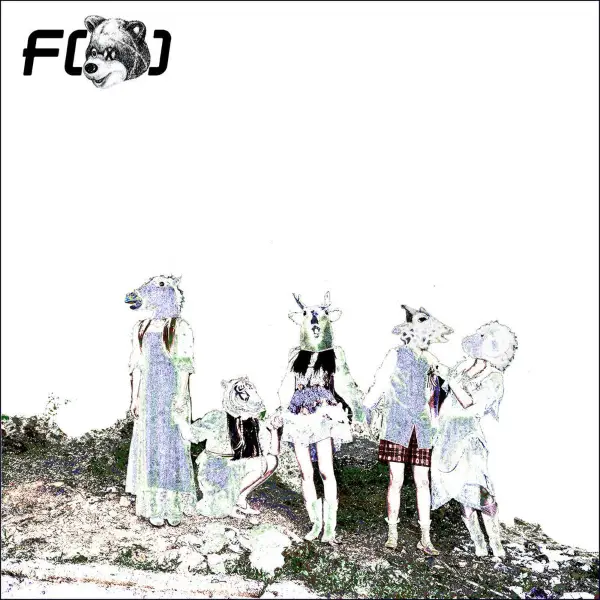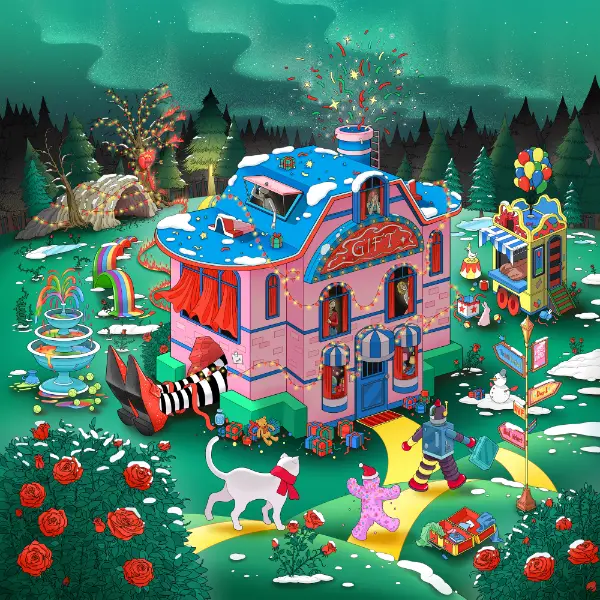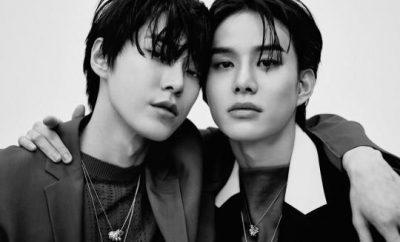The 250 Greatest Idol Group Songs of All Time: #25-#1
The 250 Greatest Idol Group Songs of All Time (2020 Edition)
Tabla de contenidos
Introductory post
#250-#226
#225-#201
#200-#176
#175-#151
#150-#126
#125-#101
#100-#76
#75-#51
#50-#26
#25-#1
25. Red Velvet – Psycho
From The ReVe Festival Finale (2019)
SM Entertainment
Written by Kenzie
Composed by Andrew Scott, Cazzi Opeia, Ejae
Arranged by Druski, Yoo Young-jin
Links: music video, audio, stage
In some ways, “Psycho” was the culmination (to date) of everything that has made Red Velvet’s music so consistently good. The song’s vocal layering was more intricate and harmonious than ever, its arrangement denser and sleeker, its soundscape more casually luxurious, and its melody more subtly addictive. The deliciously controlled lyrics and bold instrumental choices (check out the crazy glissandos in the final chorus) sort of felt like comfort food, like Irene’s trademark punchy rapping, so accustomed we had become to this excellence. Tidy, no frills, unassuming. Wendy’s awful injury and Irene’s controversy has had the group in uncertain waters this year, but Red Velvet sometimes made it look so effortless.
24. Vixx – 도원경 (Shangri-La)
From 桃源境 (도원경) (Shangri-La) (2017)
Jellyfish Entertainment
Written by Jung Il-lee (JamFactory), Ravi (Vixx)
Composed/arranged by Devine Channel
Links: music video, audio, stage
After some ambitious conceptual journeys spanning Victorian literature to Greek mythology, Jellyfish and Vixx arrived at Orientalism as the inspiration to ground their future-bass experiment. That’s a weird combination on paper, but “Shangri-La” made them perfectly compatible. Borrowing from the idyllic imagery of The Peach Blossom Spring, Vixx sang of a transporting, intoxicating moment locked with a loved one, in a place where senses are captured in paintings and the night conjures camellias and peach blossoms. (In retrospect it strongly foreshadowed the more structured imagery of “Scentist”.) Evocative gayageum plucks and synthetic strings morphed into each other in the intricate arrangement, as atmospheric as a valley mist, and a passionate melody burned in their midst. From novel idea to persuasive execution, “Shangri-La” was perfection.
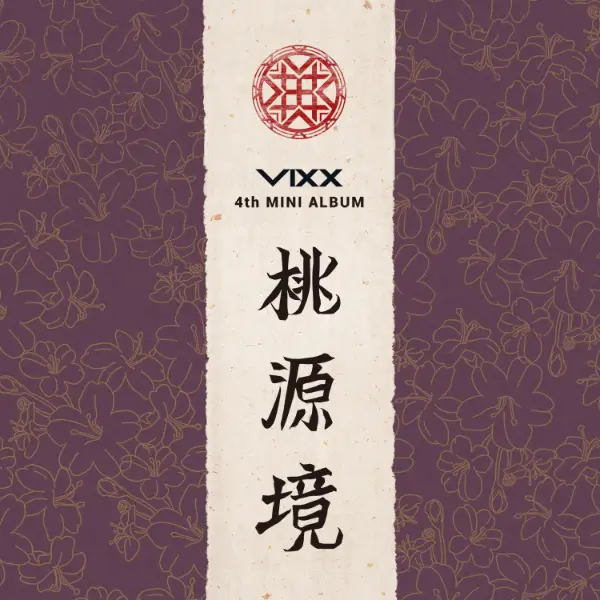
23. F(x) – 4 Walls
From 4 Walls (2015)
Written by Lee Seu-ran
Composed by Adrian McKinnon, Tay Jasper, LDN Noise
Arranged by LDN Noise
Links: music video, audio, stage
A sleek and clinical deep-house beat had “4 Walls” sounding standoffish at first, but the A&R had less obvious plans. Lee Seu-ran’s geometric narrative described an abstract built environment of walls, mirrors and mazes, bounded by the character of an affectionate lover. It was as unique as you’d expect from an F(x) title track, but it was also surprisingly sweet and tender and cogent lyricism for being one; it signaled a profound maturation in the group’s language, which was already revolutionary at the outset but had been well-explored by 2015. On cue, the members’ vocals also relaxed into a smooth and reassuring harmony, and their singalong “Love is 4 walls” oscillating right along the wobble bass and kinetic kicks made for a special kind of satisfaction.
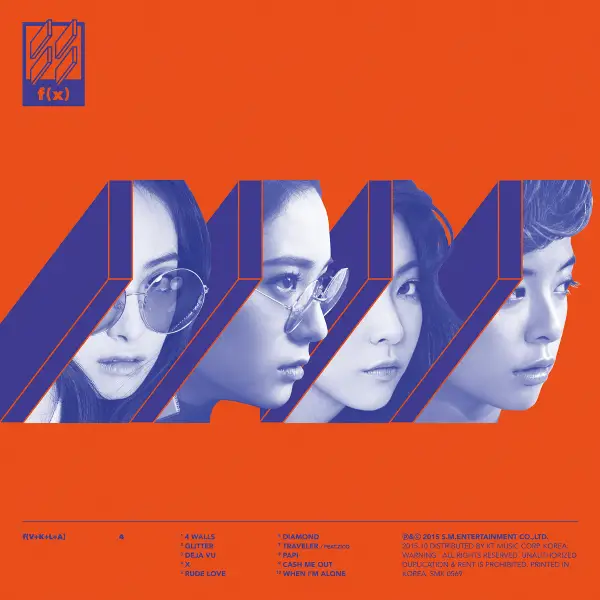
22. TVXQ – Mirotic
From Mirotic (2008)
SM Entertainment
Written/arranged by Yoo Young-jin
Composed by Mikkel Remee Sigvardt, Thomas Troelsen, Lucas Secon, Sarah Connor
Links: music video, audio, stage
“Mirotic” really felt like the song that signaled SM’s shift away from Yoo Young-jin’s SMP era. After its immense success, the label increasingly turned to European composers for its big releases and eventually built up extensive in-house expertise in more modern styles. It’s not hard to see why. Trimming out the instrumental baggage of SMP dance tracks, Thomas Troelsen and company built a much more coherent package mostly on the back of two synth lines: a subdued pulse for buildup and a heavier cascade for chorus. With tasteful management of TVXQ’s vocal talents, “Mirotic” was more powerful and memorable than its predecessors despite being so understated, and showed the way forward not only for SM but for K-pop electronica as a whole.
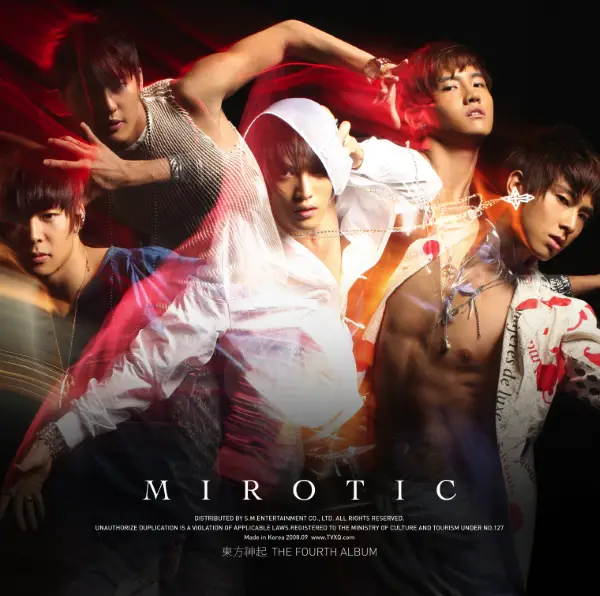
21. April – Lalalilala
From Da Capo (2020)
DSP Media
Written/composed/arranged by Moonc, Kang Myeong-shin
Links: music video, audio, stage
It maybe wasn’t the most exciting song to read about on paper – yet another retro revival track, another syllable-mashup hook – but “Lalalilala” simply sounded so good, so addictive, that it rendered all the preconceptions useless. There was already a magnetic draw in the bold string-and-bass sequence and melancholy mood, but then an elegant prechorus really flipped on the lights. As Naeun dared “Just as many times as there are stars, will you think of me,” and as reverberating synths and bright textures enveloped the intrepid melody, “Lalalilala” forcefully convinced the listener of its feverish dream; the subsequent glorious refrain was but a victory lap. It was a magical moment when April, six years into an eventful but not-always-eminent career, became the surprising team to give us (likely) the best idol track of 2020.
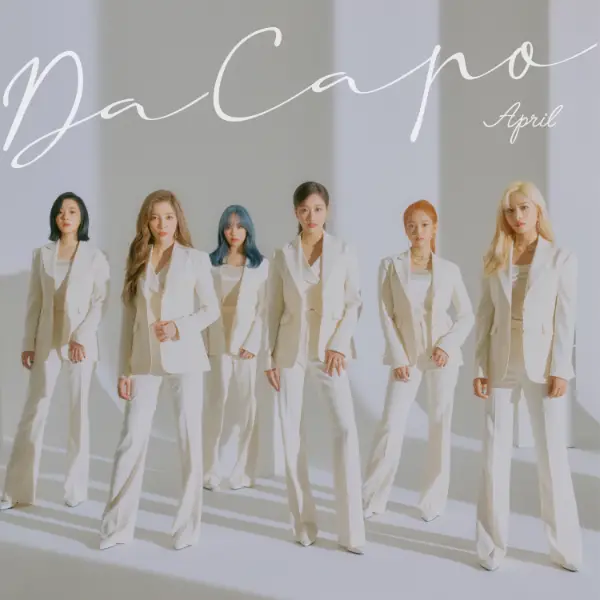
20. Koyote – 순정 (Pure Love)
From 고요태 (高耀太) (Go Yo Tae – Shine Large and Bright) (1999)
X-Plus Media
Composition/Writing/Arrangement: Choi Joon-young
Links: music video, audio, stage
The intro, sampled from the London Boys, was good; the iconic chant that followed was exquisite. It was kind of to the point where the rest of the song was completely overshadowed, but “Pure Love” (also translated “Genuine” and “Innocent Love”) was worthy. Cha Seung-min’s hazy verses had an earnest charm, and the arrangement was faithful techno that tuned its addictive melody in inventive ways – a trait that would come to define Koyote’s brand, even after the team ceased to be an idol group in the era of Kim Jong-min, Bbaekga, and the revolving door of rappers. Shin Ji‘s high notes were at a stratospheric pitch that few comers (or even the artist herself, now) could replicate, and the choreography did “Gangnam Style” 13 years early. What a song.
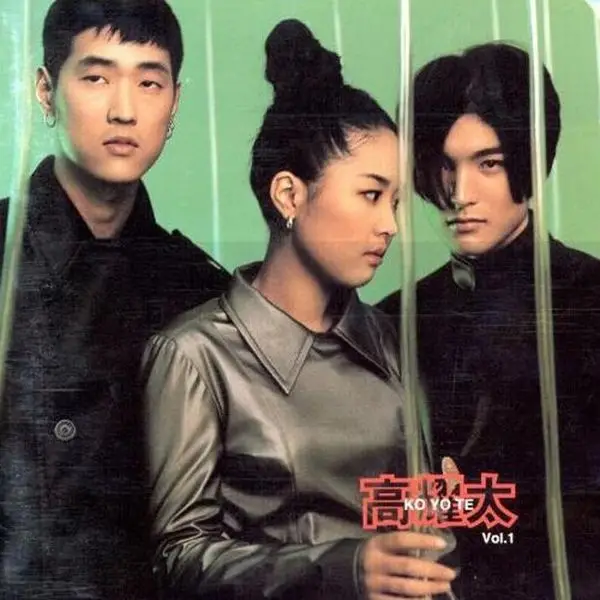
19. Big Bang – 거짓말 (Lies)
From Always (2007)
YG Entertainment
Written/composed by G-Dragon (Big Bang)
Arranged by Brave Brothers
Links: music video, audio, stage
Few songs better captured the songwriting trend of the late 2000s, the era of simple and addictive melodies with austere accompaniments. Alongside Wonder Girls’ “Tell Me”, you could put “Lies” at the forefront of the hook-song revolution. A forlorn, memorable piano loop and a chorus more focused on rhythm than pitch were breaths of fresh air; the brisk pacing and minimal clutter made for a clean presentation; and GD and especially T.O.P began to show off a rapping style that was still foreign to idol pop at this point. In these ways, this breakthrough success established the emo-pop style that Big Bang rode during their first truly influential era.
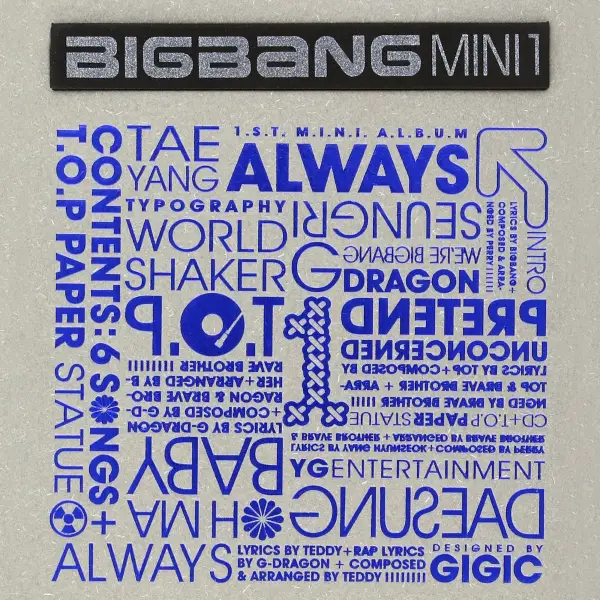
18. (G)I-dle – Lion
From Queendom [project album] (2019); officially released on I Trust (2020)
Cube Entertainment
Written by Soyeon ((G)I-dle)
Composed/arranged by Soyeon, Big Sancho (Yummy Tone)
Links: music video, audio, stage
Even in the indulgence of the Queendom competition, something as unapologetic as the self-coronation of “Lion” stood out. The beat was a monolith, ground-shaking and heart-thumping. The chorus was a storm, an imposing vista wrought from solemn choir, resolute chords and steely delivery (Yuqi’s deep tone was its star). The thunderous rap break has a legitimate claim to being the greatest in girl-group history.
And Soyeon lived up to the challenge of her own composition with her finest writing, as the lyrics declared (G)I-dle’s ascent to the throne while mixing the languages of wilderness and music and invited us to take part: “Now raise the note of rejoicing // All shall lift their heads // And crown the young lion”. The totality of it was something we had never heard in K-pop before. Uneasy lies the head that wears a crown, but (G)I-dle’s unmatched gravitas proved them worthy to bear the burden.
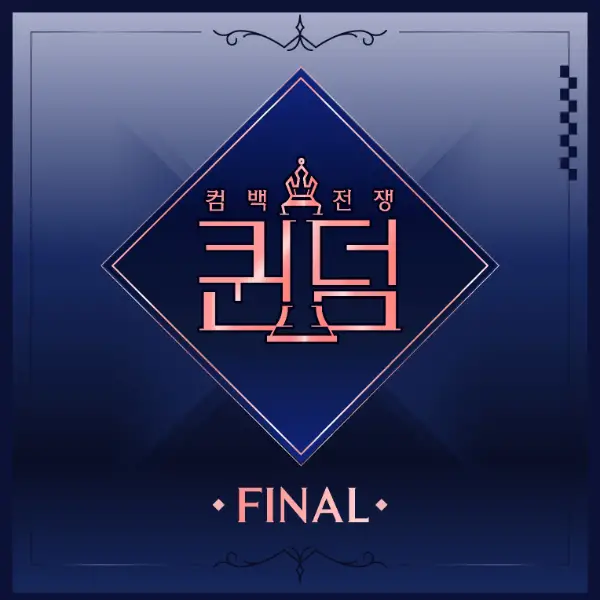
17. Kara – Step
From Step (2011)
DSP Media
Written by Song Soo-yun (Sweetune)
Composed by Han Jae-ho (Sweetune), Kim Seung-soo (Sweetune)
Arranged by by Han Jae-ho, Kim Seung-soo, Hong Seung-hyeon (Sweetune)
Links: music video, audio, stage
For the listeners, “Step” was an incredibly heady song powered as much by an intricate buildup of brass and drums as it was by an explosive and cathartic chorus; the harmony-outburst-groove pattern worked beautifully to release the song’s kinetic energy. In addition, the volumetric harmony and message of self-assuring encouragement were tailor-made for Kara’s talents and the group’s history, respectively, and it really felt like a validation and celebration of an illustrious group career. For Sweetune as well, it was arguably the apex of that brassy uptempo stype that defined a whole era of K-pop. So “Step” was a lot of things to a lot of people, and it’s appropriate that it all came together in one of the most festive singalongs in the genre’s history.
16. GFriend – 시간을 달려서 (Rough)
From Snowflake (2016)
Source Music
Written/composed/arranged by Iggy & Yongbae
Links: music video, audio, stage
The mid-majors and small labels form a crucial ecosystem in K-pop, and it’s a victory for its viability when one of the underdogs not only competes with the giants but actually become a force in their own right. GFriend – hailing from a smallish company back then – is one of the few teams to have achieved that, and “Rough” was the triumphant announcement.
A quaint atmosphere lying somewhere between nostalgia and passion, a remarkable hook that cradled vocal richness within its snappy pace, and a fate-defying story of “running through time” to close the distance with someone all captured the public’s imagination, and helped GFriend take the fortuitous success of “Me Gustas Tu” to even greater heights. One cannot tell the story of K-pop without the sensation of this song, or the career that it helped supercharge.
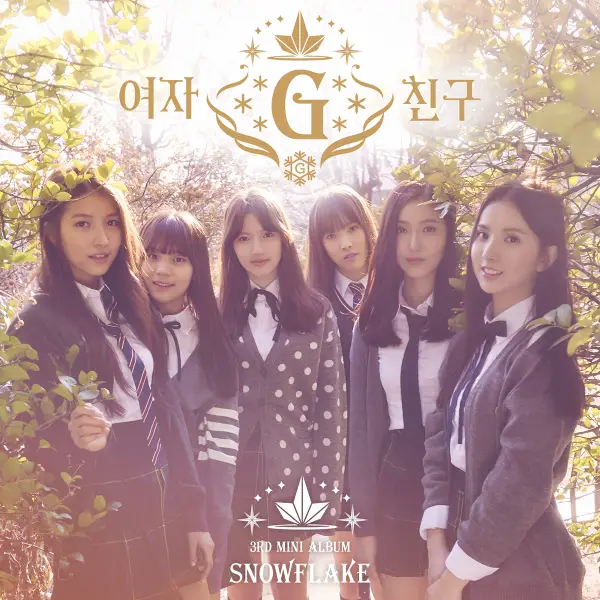
15. Oh My Girl – 비밀정원 (Secret Garden)
From 비밀정원 (Secret Garden) (2018)
WM Entertainment
Written by Seo Ji-eum
Composed by Steven Lee, Mayu Wakisaka, Sean Alexander
Arranged by Steven Lee
Links: music video, audio, stage
“Secret Garden” is far from the only song to have sung about the future, to have looked expectantly to a completion that is still to come; but this miraculous track was probably the best way anyone had ever pulled that off in idol pop. Seo Ji-eum penned a winsome tale of a little seed planted in one’s heart; Oh My Girl’s theatrical delivery, like in the heart-swelling highlights of Hyojung and Seunghee, breathed vitality into the wonder. A surprisingly dense arrangement of swirling strings and throbbing bass washed over the beautiful melody, and the catharsis reached new heights as the song switched its “I”s to “you”s, as a visit to the narrator’s “garden” blossomed into the promise of growing together. And so “Secret Garden”, transcendent, transporting, set a new standard for the interplay of concept and sound in this genre.
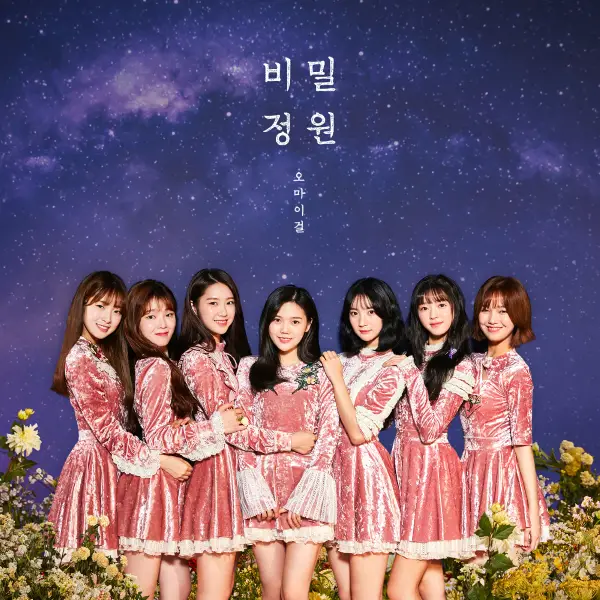
14. Loona – Butterfly
From [X X] (2019)
Blockberry Creative
Written by G-High (MonoTree), Jaden Jeong
Composed/arranged by G-High
Links: music video, audio, stage
The yearning for flight that permeated “Butterfly” wasn’t always found in the neat wording and elegant verses. It was rather embodied in the bones of the track, in the wordless flux of the vocal-devoid yet voice-filled chorus, in the shrill and almost primordial groaning of the “fly like a butterfly” refrains. These formed a hypnotic veneer atop powerful drums and resonant synths, an oddly satisfying coexistence much like that between the narrator’s desires for freedom and companionship. As Loona enacted their escape through fluttering of wings and “hurricanes” of the heart, it became clearer we’d never heard anything quite like this before. Breaking boundaries, dreaming of faraway lands, “Butterfly” pushed the frontier of what is possible in K-pop a little further.
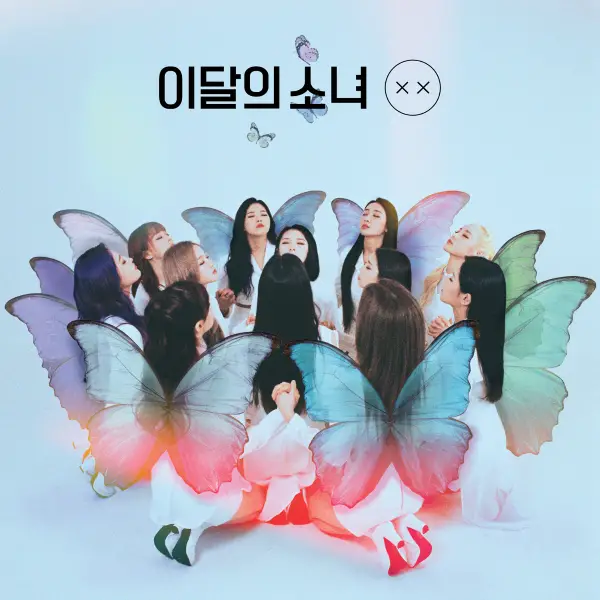
13. FIN.K.L. – 영원한 사랑 (Eternal Love)
From White (1999)
DSP Media
Written by Kim Young-ah
Composed by Joo Tae-young
Arranged by Joo Tae-young, Cho Sung-jin
Links: music video, audio, stage
This has got to be one of the best, if not the best, examples of image-making in K-pop history. To this day, “Eternal Love” is synonymous with FIN.K.L.; in the monolithic culture of the 1990s, its iconic melody, “promise me” highlight, and pinky-promise choreography was known by the population of an entire nation. The simplistic yet bold brass backing and timely techno rhythm weren’t groundbreaking, but they were incredibly effective at powering a bubbly summer jam. With this sophomore effort, DSP perfected a girl group archetype distinct from S.E.S.’s brand of elegance and mystery, one that has arguably had more influence on the scene than any other. Countless groups and albums have since followed in the footsteps of FIN.K.L. and “Eternal Love”.
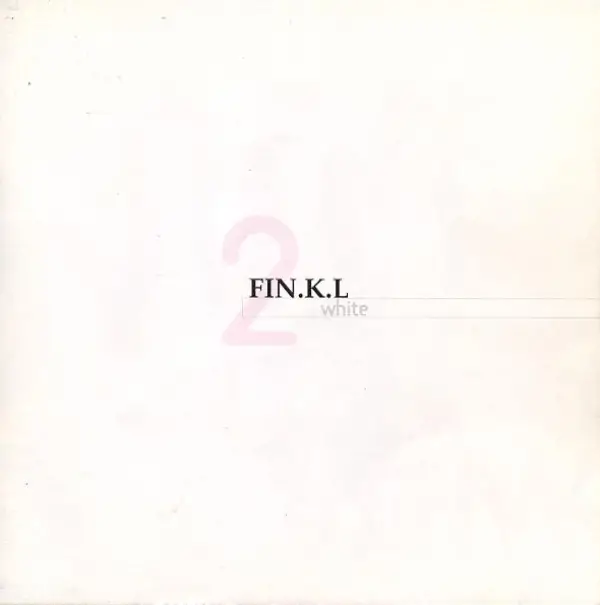
12. H.O.T. – Candy
From We Hate All Kinds of Violence (1996)
SM Entertainment
Written/composed/arranged by Jang Yong-jin
Links: music video, audio, stage
“Candy” is the earliest and most important song on the entire list. We Hate All Kinds of Violence launched the era of the modern idol group, but it’s not clear that either the album or the group would have had its tectonic, scene-defining success without this side track. (It’s easy to forget that “Descent of Warriors” was the actual title track.) And without H.O.T. stabilizing a moribund SM Entertainment, the company produces no other groups, and the histories of competitors like DSP and Sidus (itself an unintentional offshoot of SM) looks very different; it’s no exaggeration to say idol pop as we know it may not exist.
That accounts for much of this high placement, but “Candy” was a great song in its own right too. An infectiously bouncy melody and packed instrumentation – nineties tropes like orchestra hits and crude drums – stuck like glue, and Tony Ahn’s breathless, uplifting chorus was basically the anthem of a whole generation of listeners.
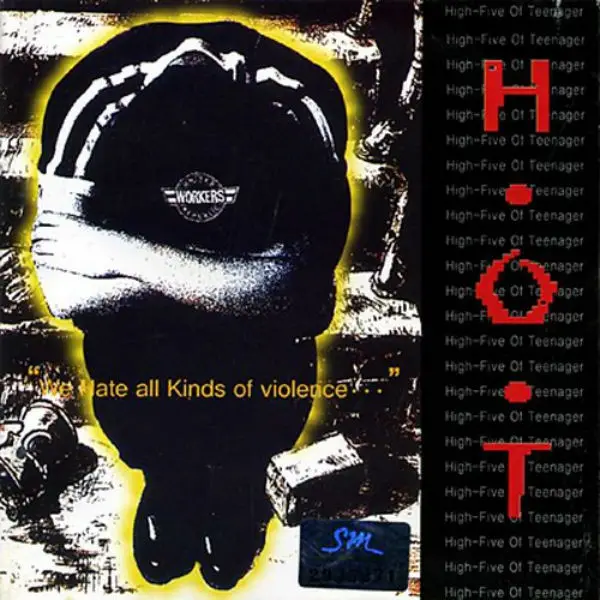
11. S.E.S. – Be Natural
From A Letter from Greenland (2000)
SM Entertainment
Written/composed/arranged by Yoo Young-jin
Links: music video, audio, stage
Even when first-gen idol songs became broadly popular, they weren’t necessarily considered “serious”: when they weren’t a subculture for fans, they were at best a cheer-up for people to rally around. In that environment, “Be Natural” was a prototype – not of a particular style of music, but of the idea that idol pop could be something more as art.
Yoo Young-jin’s simmering beat, tasteful jazz and bossa nova tropes, and unpredictable melodies indicated unwavering dedication to quality; the intricate and richly layered ebb and flow of S.E.S.’s voices was a dramatic step forward for the trio’s credibility as a vocal group. Reflecting the tender austerity of its narrator’s desires – just someone with “a world like mine, a gaze resembling mine, generous words like an essay” – “Be Natural” was sophisticated yet unassuming, and it would be years before idol pop would begin to realize this song’s promise.
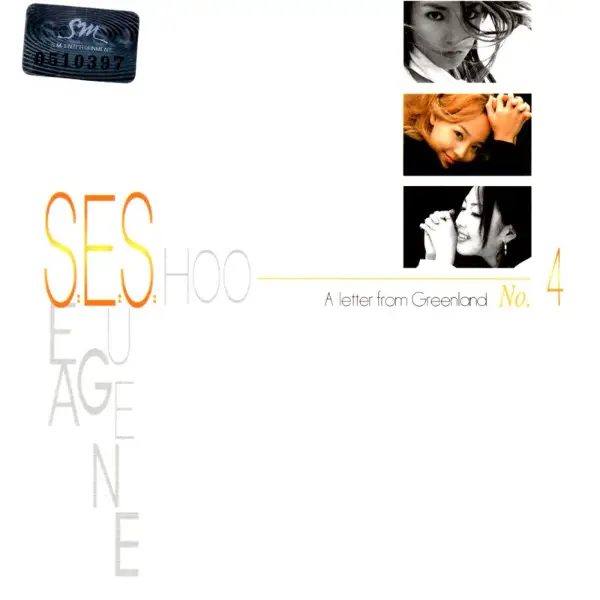
10. Infinite – 추격자 (The Chaser)
From Infinitize (2012)
Woollim Entertainment
Written by Song Soo-yun (Sweetune)
Composed by Han Jae-ho (Sweetune), Kim Seung-soo (Sweetune)
Arranged by Han Jae-ho, Kim Seung-soo, Hong Seung-hyeon (Sweetune)
Links: music video, audio, stage
There exist a handful of complex, difficult-to-translate emotions that the Korean people have come to view as a shared heritage and a distinctively Korean experience: the coiled, stifled sorrow of han is one, the generous intimacy of jeong is another, and the infectious, wholehearted joy of heung is a third. This heung was the salve that Sweetune and Infinite needed to take the group’s discography to a new level, making “The Chaser” one of the catchiest K-pop tunes of all time.
Doubling down on the tinge of kitschiness that already existed in Infinite’s prior work, the singalong chorus took on traditionally inspired melodies and lyrical flairs and incorporated them with endearing aggression. The explosive arrangement, featuring Sweetune’s trademark brass comping and electric guitar at frenetic pace, charged the song’s surprising bitterness with carefree hedonism, crafting something surreal and quite full of heung in the process.
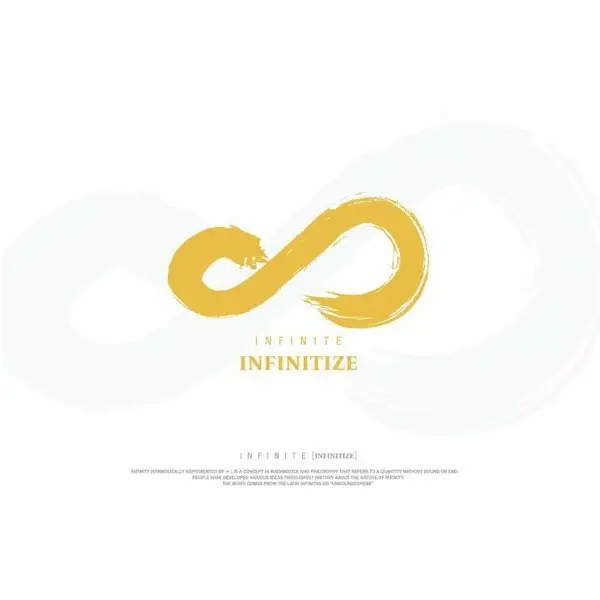
9. F(x) – Airplane
From Pink Tape (2013)
SM Entertainment
Written by Misfit
Composed/arranged by Martin Mulholland, Julia Fabrin, Tim McEwan
Links: audio, stage
In a sophomore album of unprecedented sound quality, “Airplane” was the most unflinching track of all. Synths of abrasive texture and aggressive rhythm rolled seamlessly into a gorgeous melody; innocent yet bittersweet lyrics, with love as a precarious plane navigating turbulence and defying gravity, took thrilling flight in F(x)’s hands. It all crystallized in the miraculous drop, a cathartic bombardment of sound and beckoning call. The track harnessed the group’s penchant for the surreal in imaginative fashion, a glimpse into what would become the philosophy of “4 Walls”. It’s the best side track in K-pop history.
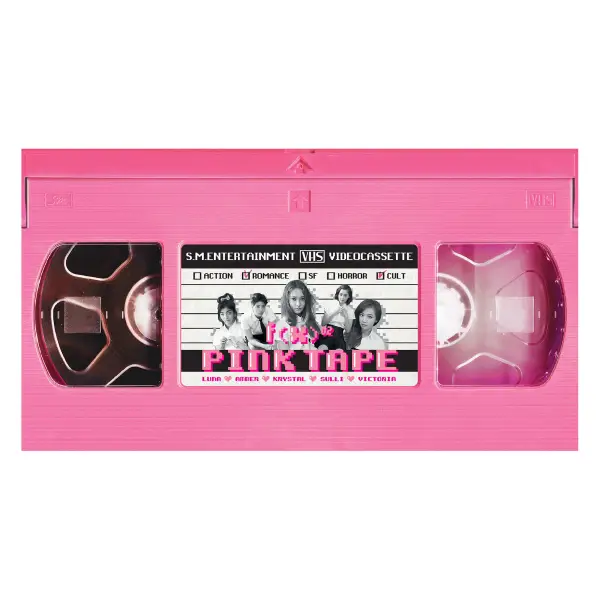
8. BTS – DNA
From Love Yourself 承 ‘Her’ (2017)
Big Hit Entertainment
Written/composed by Bang Si-hyuk, Supreme Boi, RM (BTS), Suga (BTS), Pdogg, Kass
Links: music video, audio, stage
As a group that’s written history time and time again, BTS has had so many inflection points in their career that it’s hard to pinpoint a single most important song. Still, at the end of the day, “DNA”‘s runaway international success – setting up the more explicitly outward-looking ventures of “Boy with Luv”, “Dynamite” and more – and standalone excellence make it a natural pick.
The striking whistle loop and snappy analog buildup were prelude to the effortlessly cool delivery to come, and a disarming introduction to the polished future-bass transition of the Love Yourself series. In the chilled-out depths of wobbling bass and spiking synths, BTS also struck a golden balance of boyish passion and sprawling scale, making a forceful argument of destiny engraved in one’s very genes. The most persuasively addictive song of the group’s discography to date.
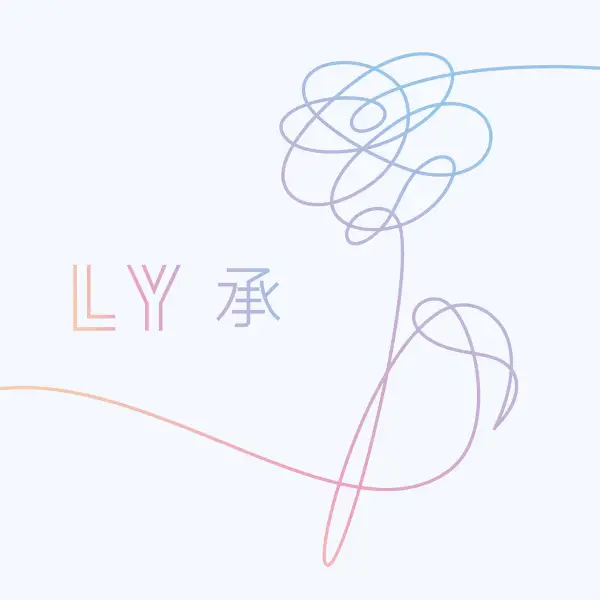
7. god – 거짓말 (Lie)
From Chapter 3 (2000)
Sidus HQ
Written/composed/arranged by J. Y. Park
Links: music video, audio, stage
Until the advent of BTS’ Love Yourself series, Chapter 3 held the best-selling idol album record for 17 years. Its title single was perhaps unfittingly austere, but that was the very identity of god. The collection of waterdrops, brush, hi-hat, and whining guitars that passed for a beat were calming, and served to accentuate the vocal performances. Kim Tae-woo’s JYP-channeling, crooning vocals carried the song, but the conflicting interjections of the chorus had undeniable dramatic effect – certainly the best use-case of that device in K-pop. Denny Ahn and Joon Park‘s narrative rapping also predated Korea’s melodic-rap trend by about five years.
The members spoke and spat incisively, and groups 20 years their junior are still having trouble recapturing the emotional heft, contrived or not, that god harnessed in “Lie”. Never in Korean popular music did a single slow jam hold this much sway.
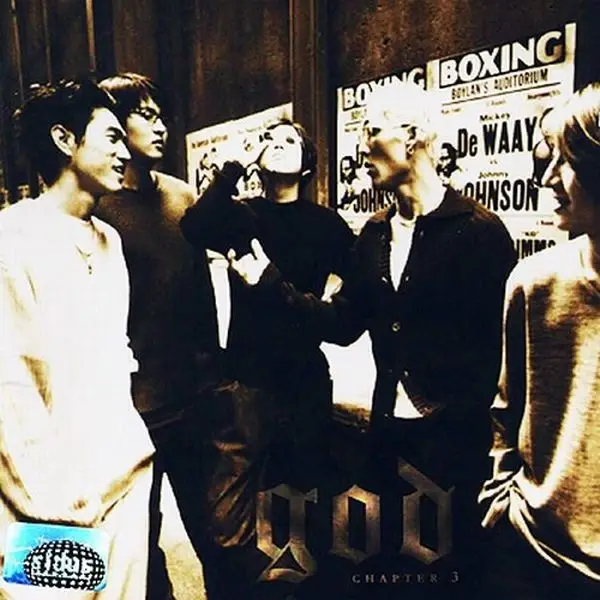
6. Girls’ Generation – Gee
From Gee (2009)
SM Entertainment
Written/composed/arranged by E-Tribe
Links: music video, audio, stage
It was a bubbly electropop beat with a twist. E-Tribe took elements like wobble bass and abrasive synth timbres, hardly mainstream things in K-pop back then, to replace tried-and-true instruments; then they grafted on a love-at-first-sight narrative and a devilishly addictive confection of a hook. This unlikely marriage turned out to be explosive.
“Gee” was an indelible hit that transformed the nature of idol pop discourse, placing the genre at the frontier of the nation’s electronic music output. It’s arguably led to much of the variety we see in idol pop compositions today, not just in synthpop and EDM but even in other styles. Like S.E.S.’s work did a decade before, “Gee” showed that there was plenty of room for expression and experimentation even in this commercialized setting. This time, the rest of the scene got the hint.
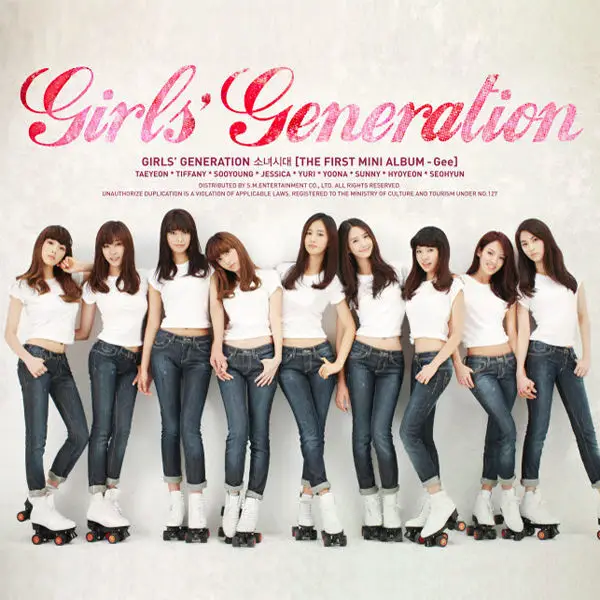
5. Red Velvet – 빨간 맛 (Red Flavor)
From The Red Summer (2017)
SM Entertainment
Written by Kenzie
Composed/arranged by Ludwig Lindell (Caesar & Loui), Daniel Caesar (Caesar & Loui)
Links: music video, audio, stage
The summer bop is an esteemed tradition of K-pop, with the yearly fray for estival (and festival) dominance going all the way back to first gen in the competitions of Diva, Papaya, Sharp and more. “Red Flavor” entered that ring in 2017 with unprecedented gusto, flaunting a booming soundscape of brass and kicks and a dynamic melody that tamed the relentless rhythm. (The 2020 orchestral adaptation is a great way to recount just how dramatic and steep it was.)
But the real soul of the track was in the emotions it took in from Red Velvet, and in turn evoked in us: the members poured elation and bashful excitement into the track, and the arrangement seemed to respond as it swelled and crested. The cathartic bridge, Wendy’s raising of the roof as Irene and Yeri egged on the listener, was all of this in 30 seconds: summer’s ethereal joys, its sentimental twilights, its endless possibility. That’s why “Red Flavor” is the only idol song to have been named Hellokpop’s Song of the Year in the 10-year history of our annual reviews, and why it’s the greatest seasonal anthem the genre has known.
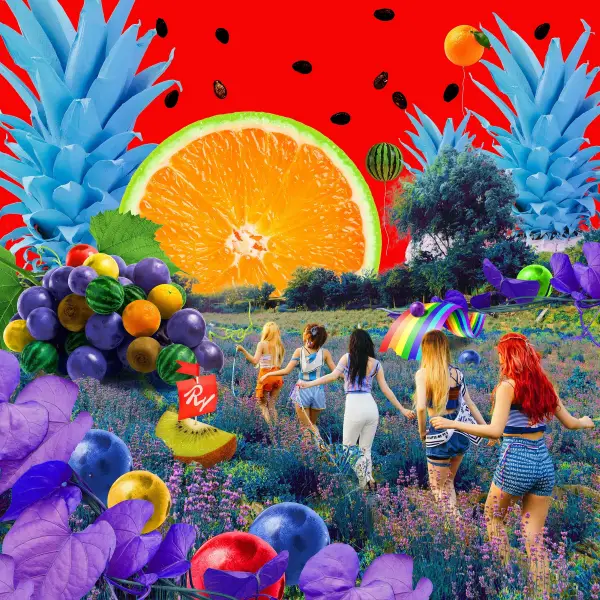
4. Brown Eyed Girls – Abracadabra
From Sound-G (2009)
Nega Network
Written by Kim Eana
Composed/arranged by Hitchhiker, Lee Min-soo
Links: music video, audio, stage
This collaboration of Hitchhiker, Lee Min-soo and Kim Eana – truly an era-defining working relationship – was one of the first K-pop idol songs to reach into the denser and more caustic sides of EDM (right around the same time as the aforementioned “Gee”), riding on the coattails of the scenewide electronic boom from 2008 but also taking it a brave step further. That tone-setting thick synth texture crackled like a live wire throughout the track, and the heady house beat made for a breathless listening experience.
Brown Eyed Girls showed their roots as a vocal quartet even amidst the breezy pace, contributing rich and satisfying depth to the powerful hooks, and aggressive autotune accentuated the masterfully clinical performances. And in a redemption of sorts for all the underground years, the group’s time-tempered steely attitude lit off both the track and its choreography, launching a nationwide sensation.
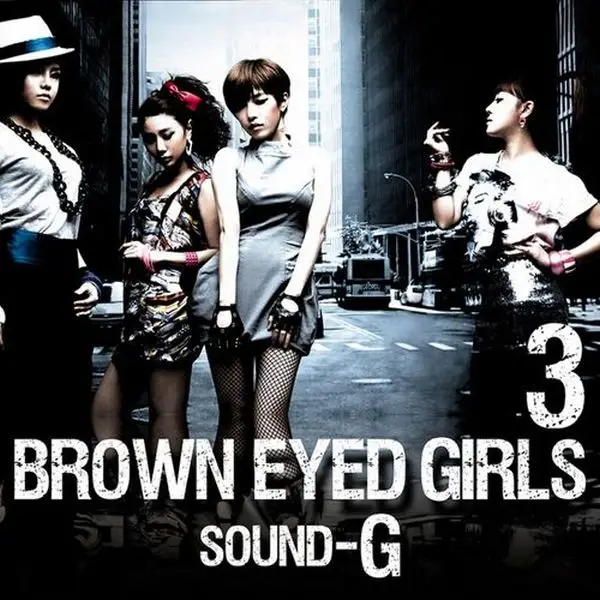
3. Shinhwa – Brand New
From Brand New (2004)
Good Entertainment
Written by Ahn Young-min
Composed by Park Geun-tae, Cho Young-soo
Arranged by Park Joon-ho
Links: music video, audio, stage
K-pop is defined in part by systemized production, and despite the wealth of self-producing idols today, a great deal of the sounds and concepts we consume still ultimately belong to the behind-the-scenes creatives who tend to stay as the idols change. So when the first generation was coming to a close, we didn’t really know what it would look like for an idol group to outlast its brain trust; and it was a shock when, after collectively refusing to re-sign with SM Entertainment (the first time a group had migrated while staying intact), Shinhwa returned with maybe their best and definitely their most successful album.
“Brand New”, the title track and Shinhwa’s magnum opus, was an amalgam of powerful strings and crackling guitar and cymbals; an analog soundset at once rugged and sophisticated, hurtling to a thrilling conclusion. Crucially, it was the traits unique to the six members, from Eric‘s impossibly chic delivery to Kim Dong-wan‘s machismo to Shin Hye-sung‘s finesse, that distinguished this exhilarating track. “Brand New” proved the modern idol group centered around the individual member to be a sustainable concept, and Shinhwa is still going strong in their 23rd year, every step adding to a real shinhwa – legend – in the making.
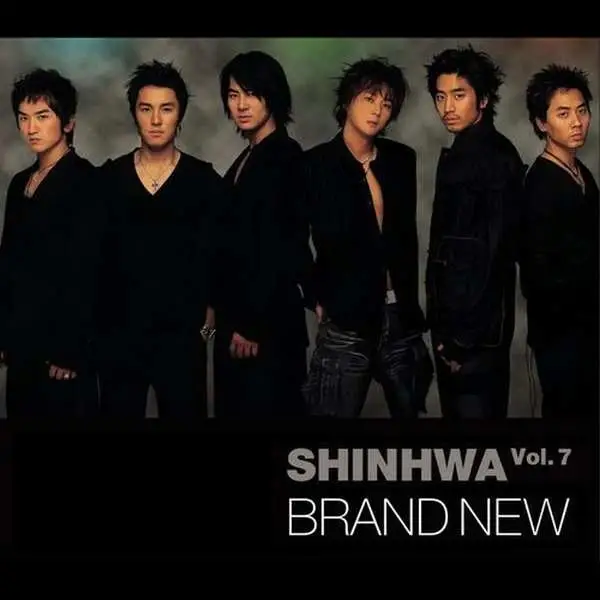
2. Wonder Girls – Tell Me
From The Wonder Years (2007)
JYP Entertainment
Written/composed/arranged by J. Y. Park
“Two of Hearts” sample composed by Mitchell John Dixon
Links: music video, audio 1 (The Wonder Years original without Yubin rap), audio 2 (So Hot remaster with Yubin rap), stage
It’s hard to overstate the impact of “Tell Me”, arguably the most popular K-pop song of all time. It was such a successful transplant of the 1980s (Stacey Q and all) that it spawned a few years’ worth of retro mega-hits ranging from Wonder Girls’ own “Nobody” to a sizable part of T-ara’s discography. It also permanently changed the landscape of mainstream K-pop: musically it partnered with contemporaries like Big Bang’s “Lies” to raise the profile of the simple hook song, and structurally, after this song swept Korea off its feet, the industry rekindled its embrace of idol pop (especially girl group pop – a dying genre at the time!) and began to launch second-generation groups at unprecedented pace.
And here we are 13 years later, with a list of great idol pop that’s mostly come after 2007. But even if you dislike the perpetual idol red ocean that this song helped create, it’s hard to deny the simple brilliance of “Tell Me”. The bouncy chiptune made retro accessible to a new generation, an insidiously infectious melody lived rent-free in everyone’s heads, and Sohee‘s timely “omona” has never been replicated in sheer impact. Maybe it was a song destined for history.
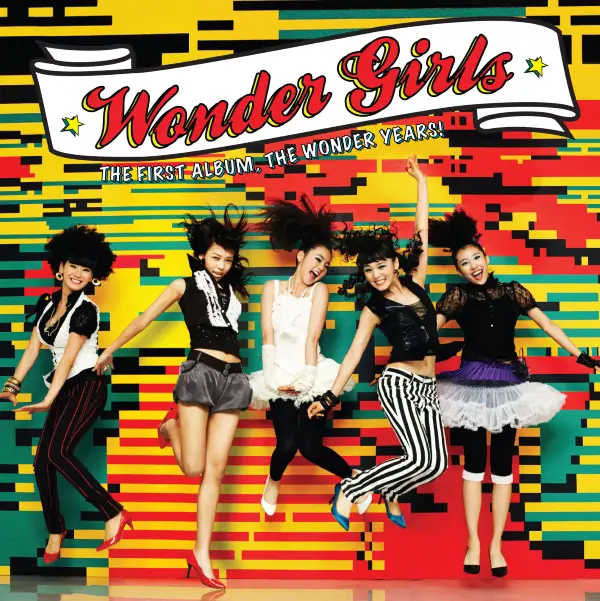
1. F(x) – Electric Shock
From Electric Shock (2012)
SM Entertainment
Written by Seo Ji-eum
Composed/arranged by Joachim Vermeulen Windsant, Maarten Ten Hove, Willem Laseroms
Links: music video, audio, stage
If the likes of “Be Natural” and “Gee” laid the groundwork to shape the perception of idol pop as an artistically significant genre, “Electric Shock” finished the job. F(x)’s weird and perplexing brand of electronica had found some footing by 2012 among the general public, but only in a half-convinced kind of way. This record changed that with a forceful manifesto that spelled out F(x)’s stylistic goals clearer than ever.
The energy here was palpable and unbridled and electric, as full-bodied synths collided against each other and spewed sparks. Following tense bulidup and unpredictable progression in the verses, the chorus blasted into overdrive, melody and synths alike cascading down in glorious stutter. Seo Ji-eum’s percussive language (including verses written as acrostics of the word “electric shock”) was picked up flawlessly by the members, and their charismatic delivery elevated the song beyond its composition. And yet, I’m not sure if all that polish – repairing the obscurities, accentuating the sonic pleasures – was actually what made it break through.
To this day I don’t know what truly was the catalyst; but somehow, people responded. “Electric Shock” became F(x)’s biggest commercial hit, and even the critics were fully won over, as this song and the EP landed on virtually every publication’s year-end lists and awards including an ever-elusive Korean Music Awards win. Tellingly, people liked different things about the song: “Electric Shock”‘s disregard of pop tropes, its inexplicable addictiveness, and the positioning of F(x) in the industry – coming from a label that can procure songs from a global supply chain, and a group with an eccentric reputation – all generated discussion. Clearly something had changed, and producer and Idology critic Mimyo put it best: “This is the future of Korean electronic music”.
The tapestry of K-pop, like that of music in general, is woven by iterative progress. But “Electric Shock” was the rare exception, a revolution that changed how we think of the genre. It’s the greatest idol group song of all time.
